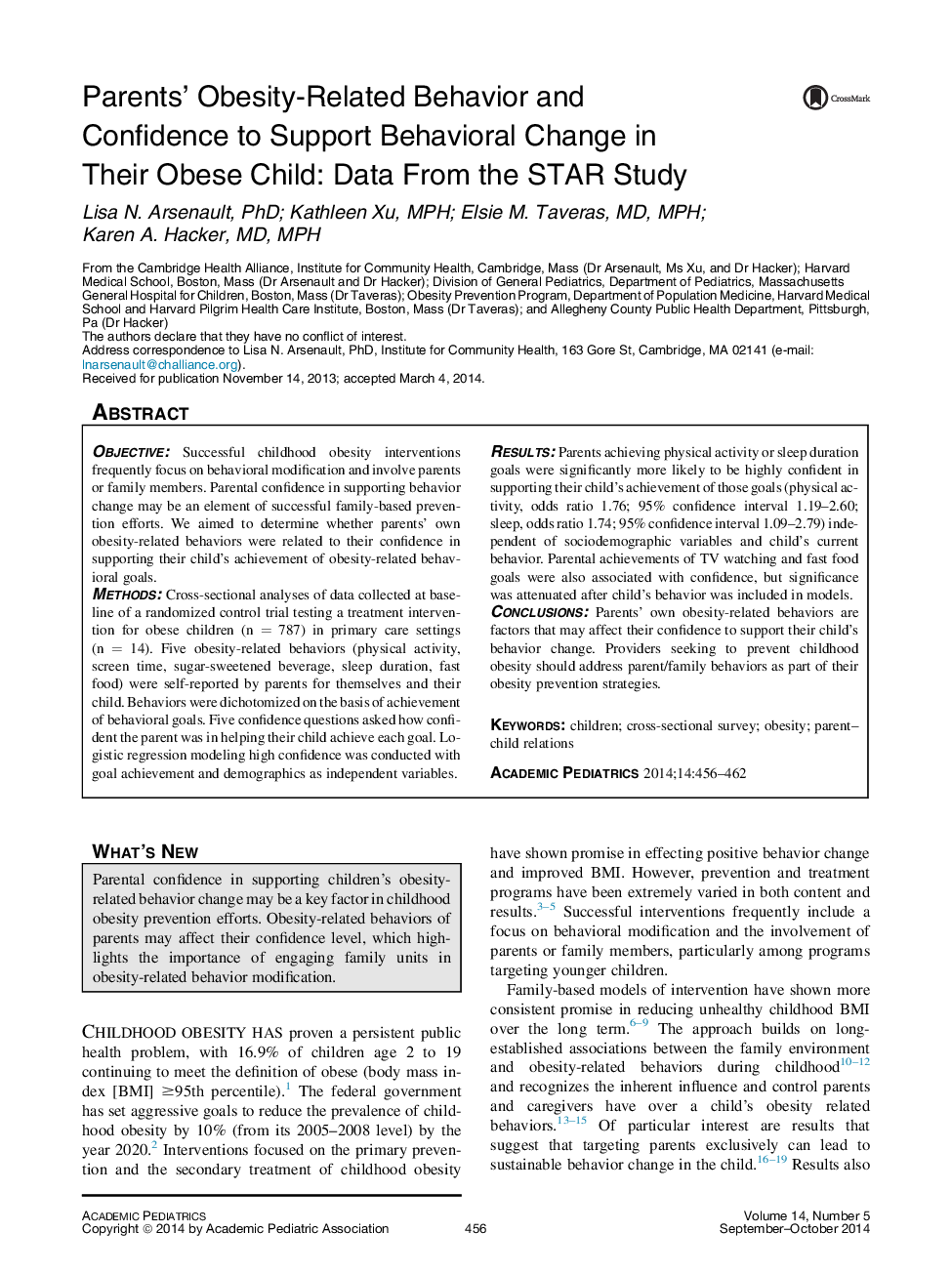| کد مقاله | کد نشریه | سال انتشار | مقاله انگلیسی | نسخه تمام متن |
|---|---|---|---|---|
| 4139657 | 1272216 | 2014 | 7 صفحه PDF | دانلود رایگان |

ObjectiveSuccessful childhood obesity interventions frequently focus on behavioral modification and involve parents or family members. Parental confidence in supporting behavior change may be an element of successful family-based prevention efforts. We aimed to determine whether parents' own obesity-related behaviors were related to their confidence in supporting their child's achievement of obesity-related behavioral goals.MethodsCross-sectional analyses of data collected at baseline of a randomized control trial testing a treatment intervention for obese children (n = 787) in primary care settings (n = 14). Five obesity-related behaviors (physical activity, screen time, sugar-sweetened beverage, sleep duration, fast food) were self-reported by parents for themselves and their child. Behaviors were dichotomized on the basis of achievement of behavioral goals. Five confidence questions asked how confident the parent was in helping their child achieve each goal. Logistic regression modeling high confidence was conducted with goal achievement and demographics as independent variables.ResultsParents achieving physical activity or sleep duration goals were significantly more likely to be highly confident in supporting their child's achievement of those goals (physical activity, odds ratio 1.76; 95% confidence interval 1.19–2.60; sleep, odds ratio 1.74; 95% confidence interval 1.09–2.79) independent of sociodemographic variables and child's current behavior. Parental achievements of TV watching and fast food goals were also associated with confidence, but significance was attenuated after child's behavior was included in models.ConclusionsParents' own obesity-related behaviors are factors that may affect their confidence to support their child's behavior change. Providers seeking to prevent childhood obesity should address parent/family behaviors as part of their obesity prevention strategies.
Journal: Academic Pediatrics - Volume 14, Issue 5, September–October 2014, Pages 456–462